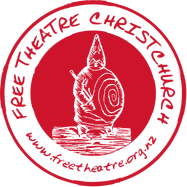|
The development of a strong ongoing Free Theatre Group in the early 1980s was made possible by the Project Employment Programme (PEP) introduced by the National government of the time. A wider scheme across multiple industries, it also allowed artists to work in the theatre with a view to developing skills that would contribute to ongoing employment. This allowed for a dedicated ensemble to develop in the new Arts Centre theatre the company had built in 1982. A diversity of works were produced in line with the company's manifesto: To stage old and new rarely staged European plays in original translations, new New Zealand plays, and classical English texts in an unusual and experimental style. Emphasis is placed on non-verbal action and high production standards, discouraging the star system and encouraging long rehearsal and training periods in a company context. Not the worst misspelling over the years. Productions through the early to mid 1980s ranged from works produced by Peter Falkenberg such as the company's magnificently gruesome King Lear, hauntingly beautiful Leonce and Lena and spectacular Lulu, to stagings of new works written by company members, including Nansi Thompson (Texts For Decomposition) and Stuart McKenzie (The Joffongract, A Letter from L, The Mortal Pleasure of Wanda Lust and The Rapist Over Susannah). Meanwhile, Robin Bond initiated with Electra what would become an ongoing series of productions of classical Greek texts that he translated and directed. At the same time, a slew of imaginative new works emerged that exposed local audiences to international contemporary theatre through presentations of avant garde innovators from Brecht to Sam Shepard, Patti Smith and Peter Handke... Mahagonny, Cowboy Mouth, (both directed by Falkenberg), Action (dir. Carol Bellini-Sharp), Tongues (assisted by Bellini-Sharp and Falkenberg), The Ride Over Lake Constance (dir. Nick Frost), Red Cross (dir. Leonard Wilcox with Falkenberg) and Takeaway (dir. Falkenberg with Roy Montgomery). Alongside this, an education programme with immersive productions such as The Hunting of the Snark began to attract students. Current Free Theatre ensemble member Emma Johnston cites Free Theatre's Snark production as a most memorable early theatre experience. These productions served as the foundations to the emergence of a special new voice of contemporary theatre in New Zealand. The Press Arts Editor Chris Moore, previewing Faust Chroma in 2008 said: "For quarter of a century, Free Theatre has redefined cultural horizons and shaped Christchurch perceptions of contemporary theatre". With daring and determination, Free Theatre established itself in the 1980s as part of a tradition of Christchurch arts organisations and artists in the visual arts, music, literature and film that developed new work that was distinct and influential in the wider cultural landscape of New Zealand. We've yet to feature all Free Theatre productions on our website (its a big archive!) but below are a few pics from the productions mentioned some of which feature on the website (links above). You can also see images from productions over three decades in our archive gallery. Make-up Ground Down / Texts for Decomposition (1983)Leonce and Lena (1983)Dinosaurs and all that Rubbish / The Hunting of the Snark (1984)Cowboy Mouth (1985)Action / Tongues (1985)The Rise and Fall of Mahagonny (1985)Lulu (1986)
1 Comment
Marian
1/17/2022 12:47:26 am
Dear Lorenzo,
Reply
Leave a Reply. |
Free Theatre ChChFree Theatre Christchurch. Intermittent blogging. Thoughts. Enjoy. Archives
March 2021
Categories |
- HOME
- ABOUT
- UPCOMING
- EDUCATION
-
ARCHIVE
-
Productions 1979 - present
>
- Babylon Berlin
- Beggars Banquet
- Woyzeck
- The Tempest
- The Axe
- Endgame
- Digitising Performance
- Erewhon: Over the Range
- A Summer Night's Dream
- How Dare You
- A Winter's Tale
-
Ubu Nights
>
-
Past Ubu Nights
>
- Ma Ubu Night
- Ubu Through the Looking Glass
- Ubu in Wonderland Ubu Night
- Frankenstein Ubu Night
- Casablanca Ubu Night
- Faust Ubu Night
- Not Hamlet Ubu Night
- Punk Ubu Night
- The Art of the Deal Ubu Night
- Crossroads Ubu Night
- Ubu Shows Us the Way to Brecht's Whiskey Bar
- The Devil and the Blues Ubu Night
- Bowie Ubu Night
- Warhol Ubu Night
- Berlin Kabarette
- Beat Ubu Night
- Twin Peaks Ubu Night
- David Lynch Ubu Night
- Kafka Ubu Night
- Tango Ubu Night
- Ubu Ubu Night
- Lovecraft Ubu Night
-
Past Ubu Nights
>
- Ars Acustica
- Alice
- The Black Rider
- Frankenstein
- The Mauricio Kagel Project
- Te Puna Toi 2015: Footprints/Tapuwae
- Kafka's Amerika
- The Soldier's Tale
- Canterbury Tales
- I Sing the Body Electric
- Hereafter
- Passion, Pulse and Power
- The Earthquake in Chile
- Doctor Faustus
- The Marvellous Corricks >
- Distraction Camp
- Remake
- Ella and Susn
- Free Theatre - 25 years and counting...
- Faust Chroma
- Enigma Emmy Goering/Nico Sphinx of Ice
- Faust Feast
- Diana Down Under
- Philoctetes >
- Fantasia
- Christmas Shopping
- Grimm's Sleeping Beauty
- Achternbusch in the Antipodes
- Caucasian Chalk Circle
- Samson Airline
- Kabarett Kabul
- Footprints/Tapuwae
- Last Days of Mankind
- Medea
- Bakkhai / Diotek
- Krapp's Last Tape
- Murderer Hope of Women / The Philosopher's Stone
- Comrade Savage
- Love on a Bicycle
- Resolution Island
- Songs for the Judges
- Crusoe
- Oedipus Rex/Oedipus at Colonus
- States of Shock
- Empire Builders
- Yes
- Power
- Robinson Crusoe: Or I THat Was Born To Be My Own Destroyer
- Newsbites
- Dumped in Space
- MedeaMaterial
- Salome
- Electra
- Sphinx and Strawmen
- The Girl Who Sings Waterfalls
- Hamletmachine
- Oresteia
- A Respectable Wedding
- Bitter Tears of Petra von Kant
- Double Act and Postponeless
- Cloudkiwiland
- Preversions
- G.O.P. Helpomatic
- The Mortal Pleasure of Wander Lust
- Red Cross & Takeaway
- Lulu Earth Spirit
- The Meeting
- Action / Tongues
- Cowboy Mouth
- The Rise and Fall of the City of Mahagonny
- A Letter from L
- Dinosaurs and All the Rubbish / The Hunting of the Snark
- The Ride Across Lake Constance
- Electra
- In Three Minds
- The Rapist Over Suzannah
- 1984: The Future Is Now
- Leonce and Lena
- Kabernette
- The Joffongract
- My Foot, My Tutor
- King Lear
- King Ubu
- Jazz Cellar Dada / Heavy Metal Cabaret
- Kabarett
- Black Cat Cabaret
- The Gas Heart/Ox on the Roof/The Mirror Wardrobe One Fine Evening
- Round Dance
- Woyzeck
- Make-up Ground down / Texts for Decomposition
- Court Case: Arts Centre vs Free Theatre
- Image Gallery 1979 - present
- TV3 Clips
- Selected Reviews
-
Productions 1979 - present
>
- Te Puna Toi
- SUPPORT
- BLOG

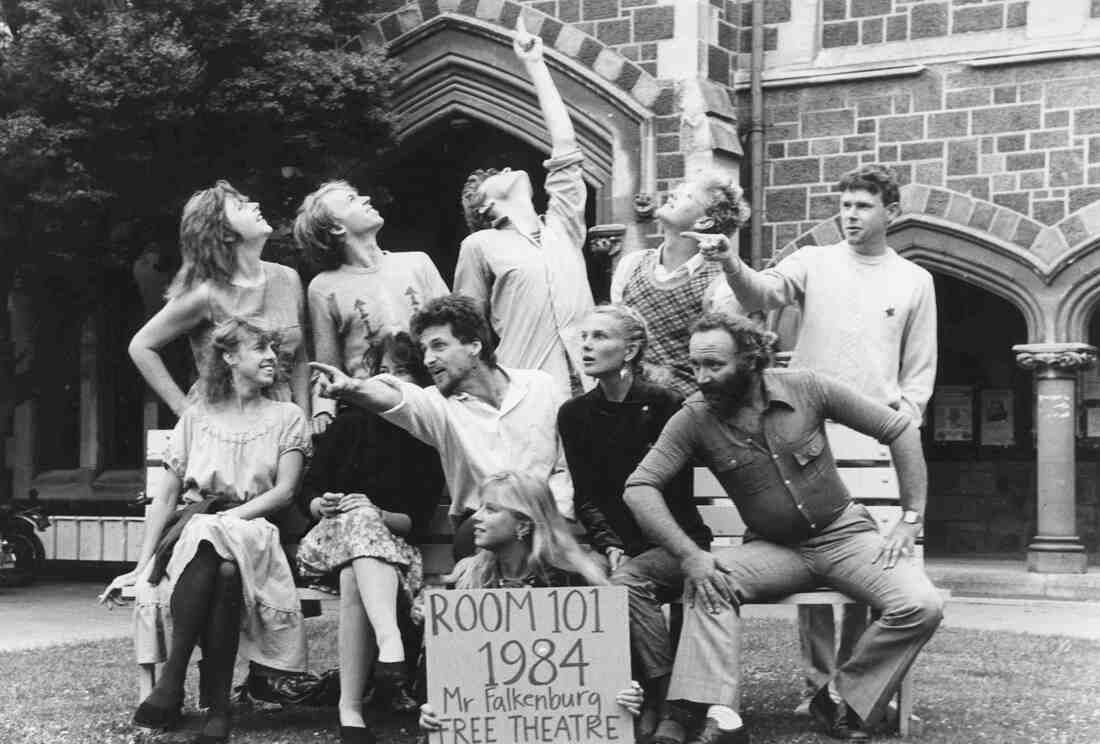
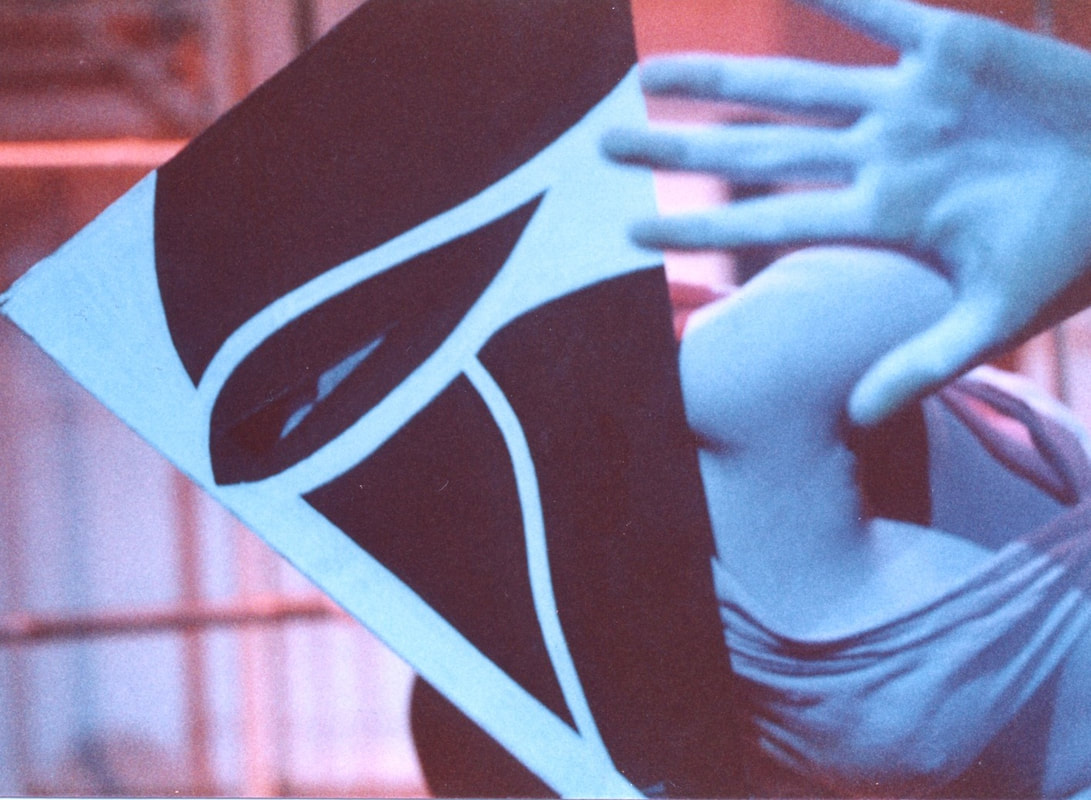
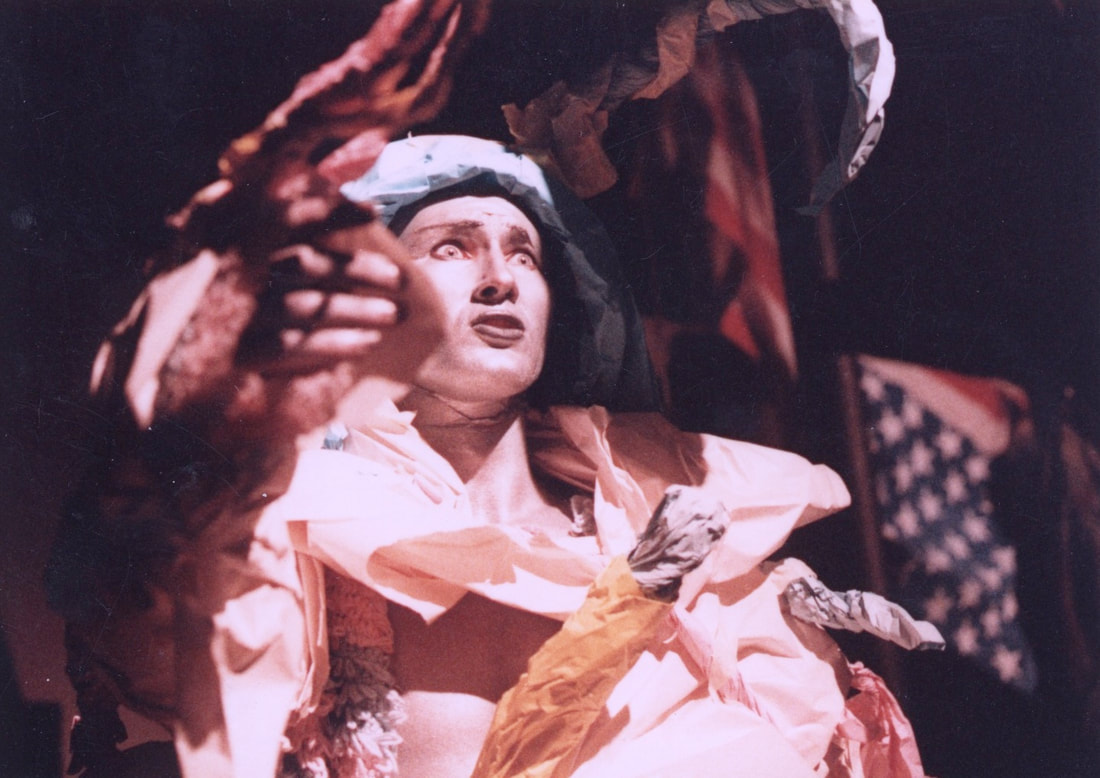
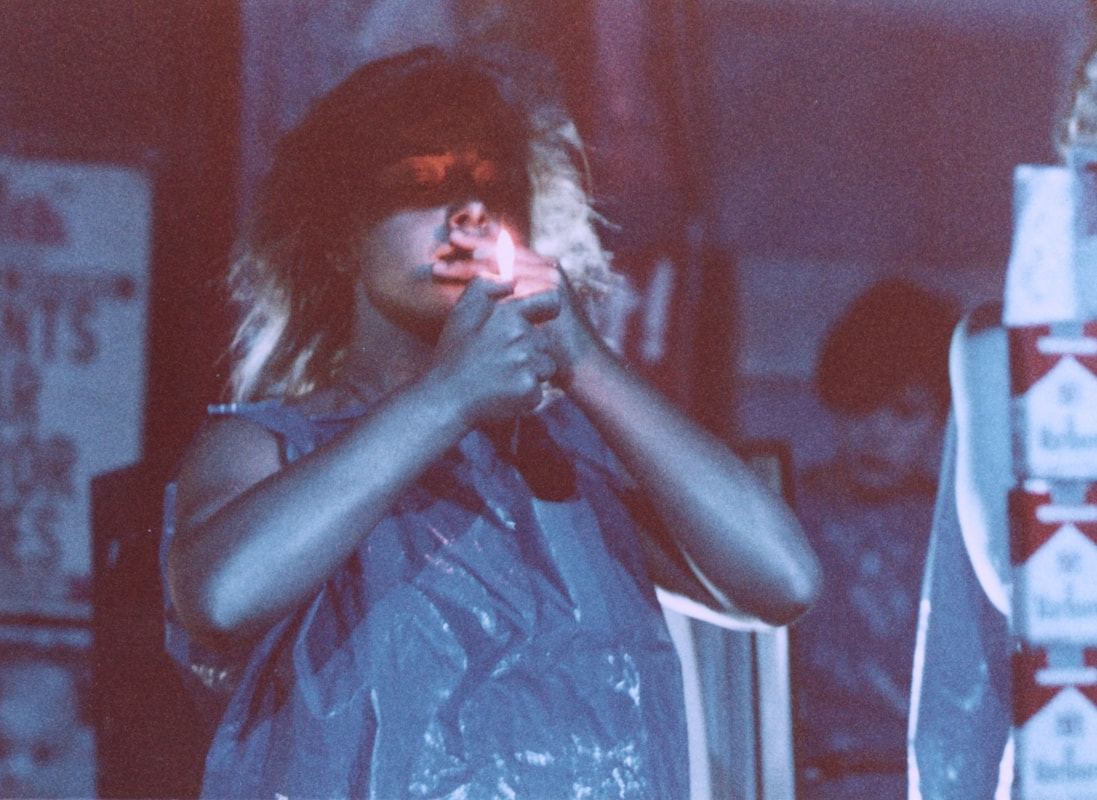
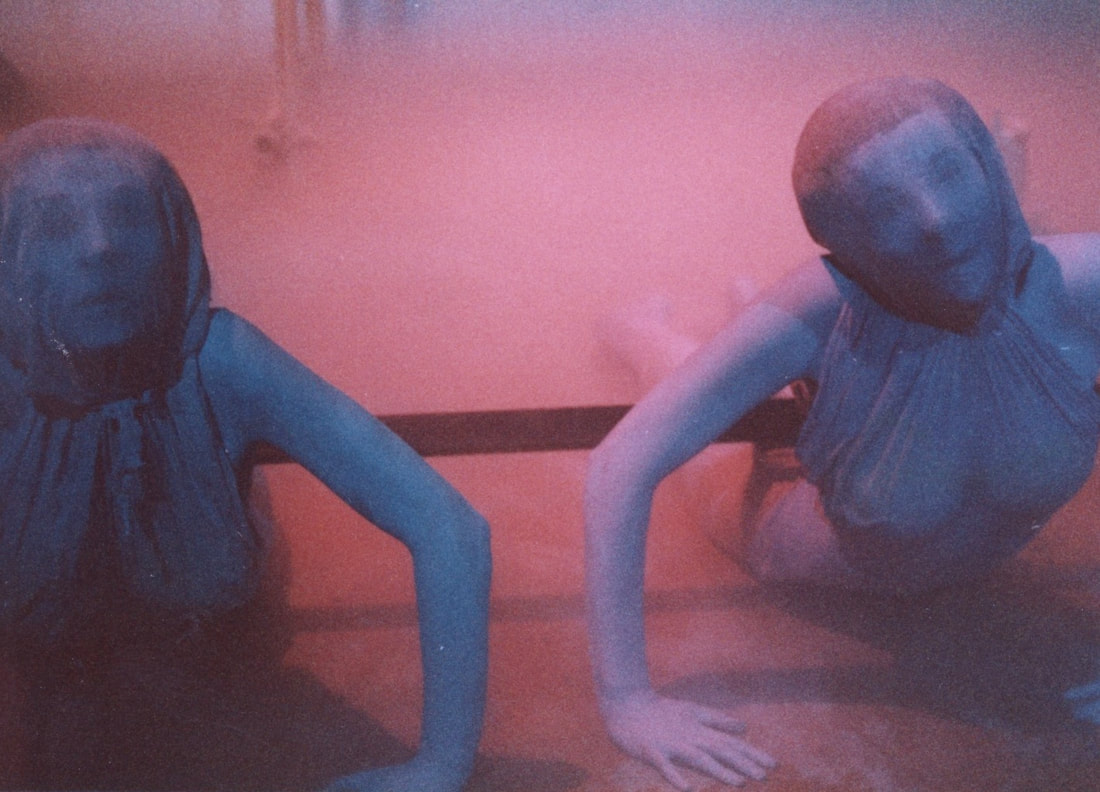
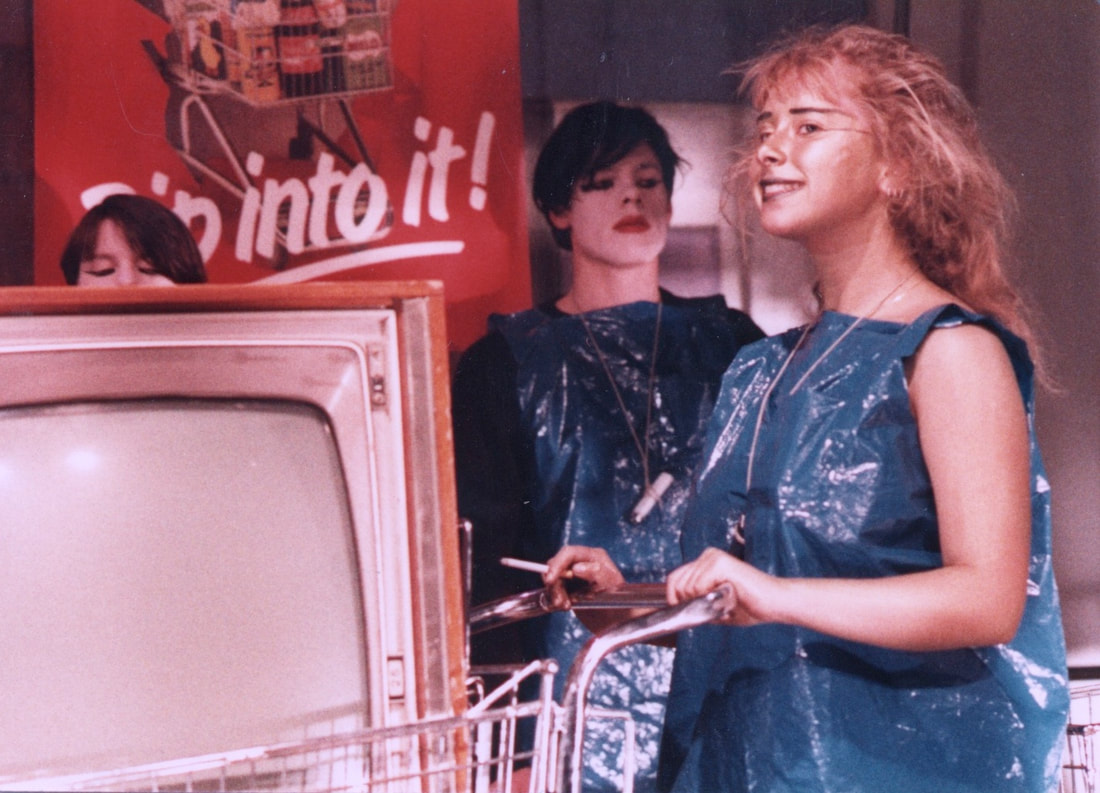
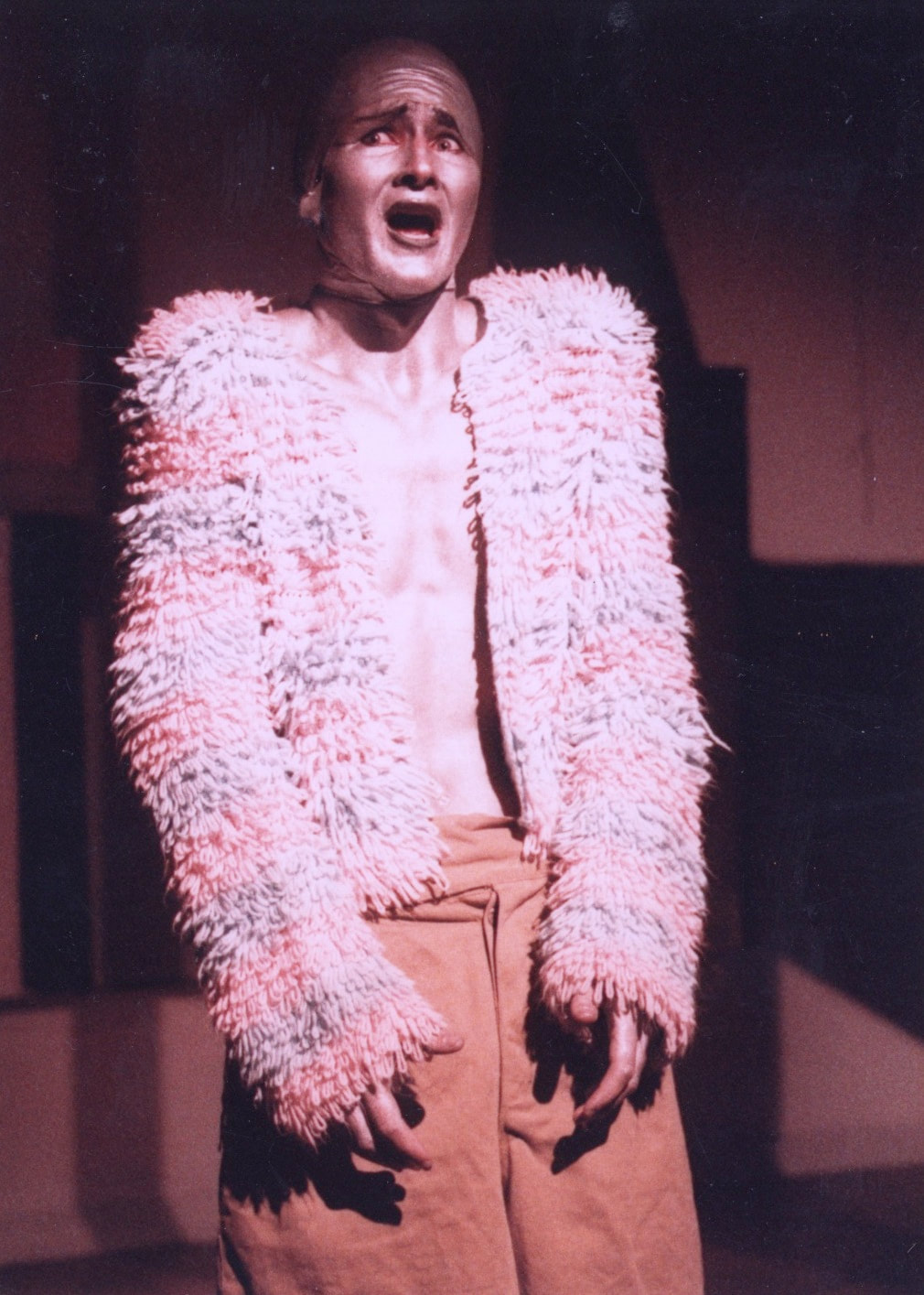
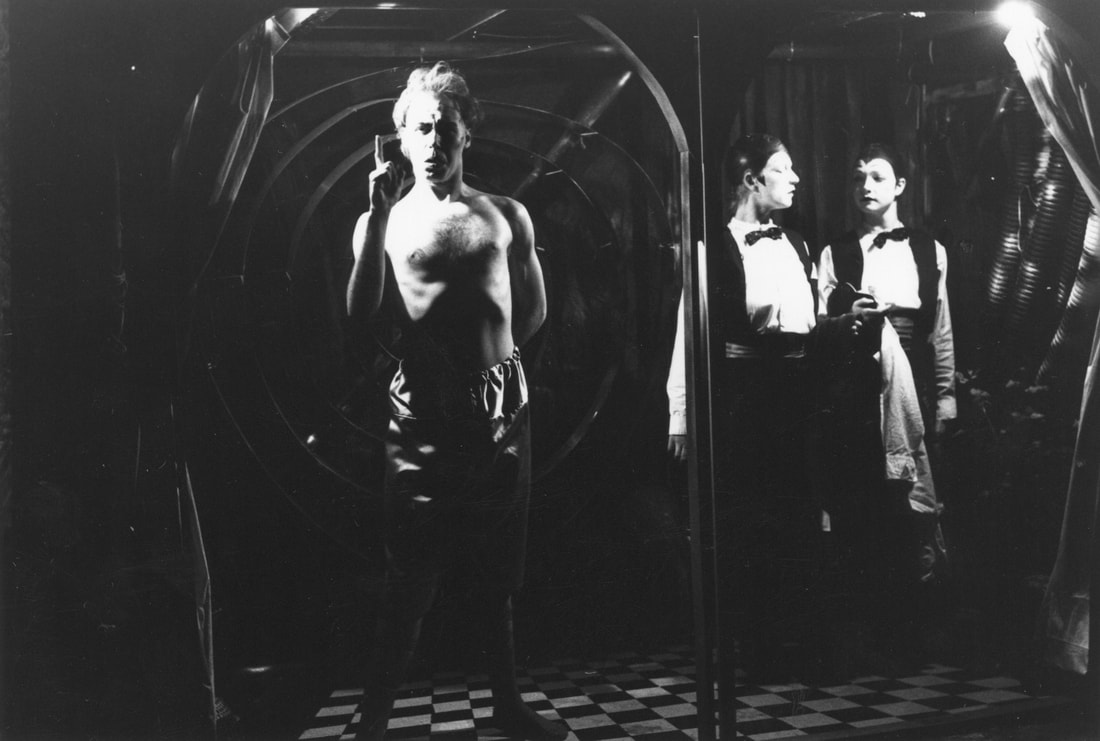
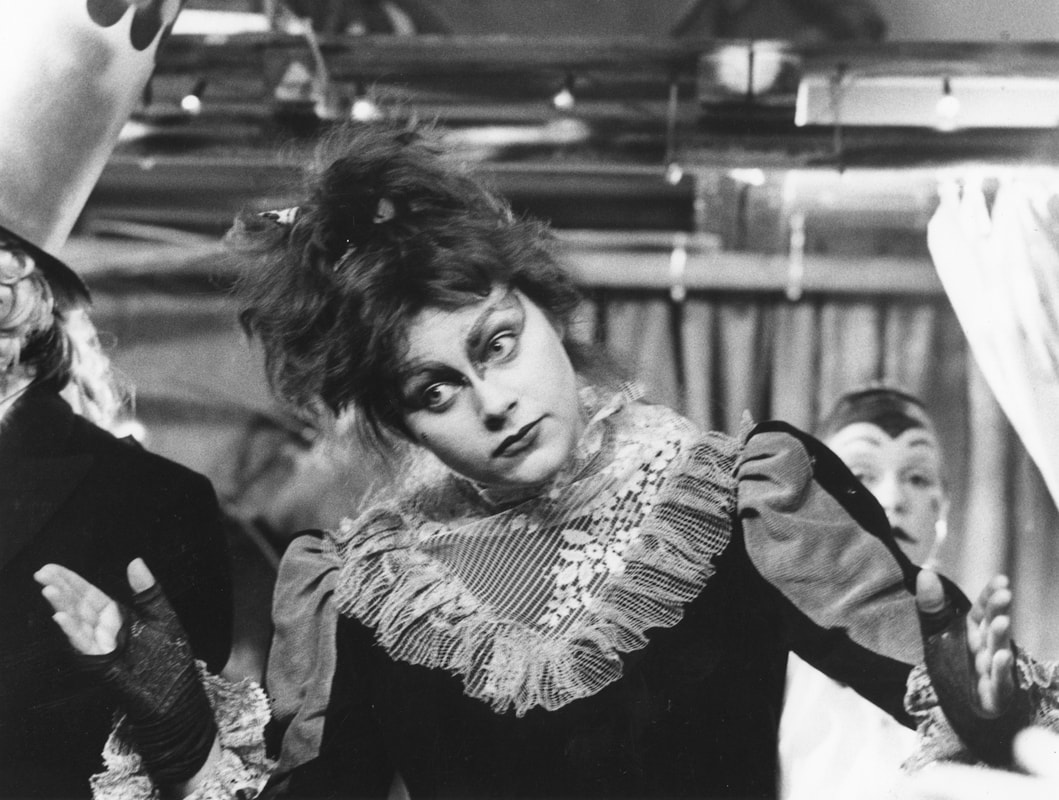
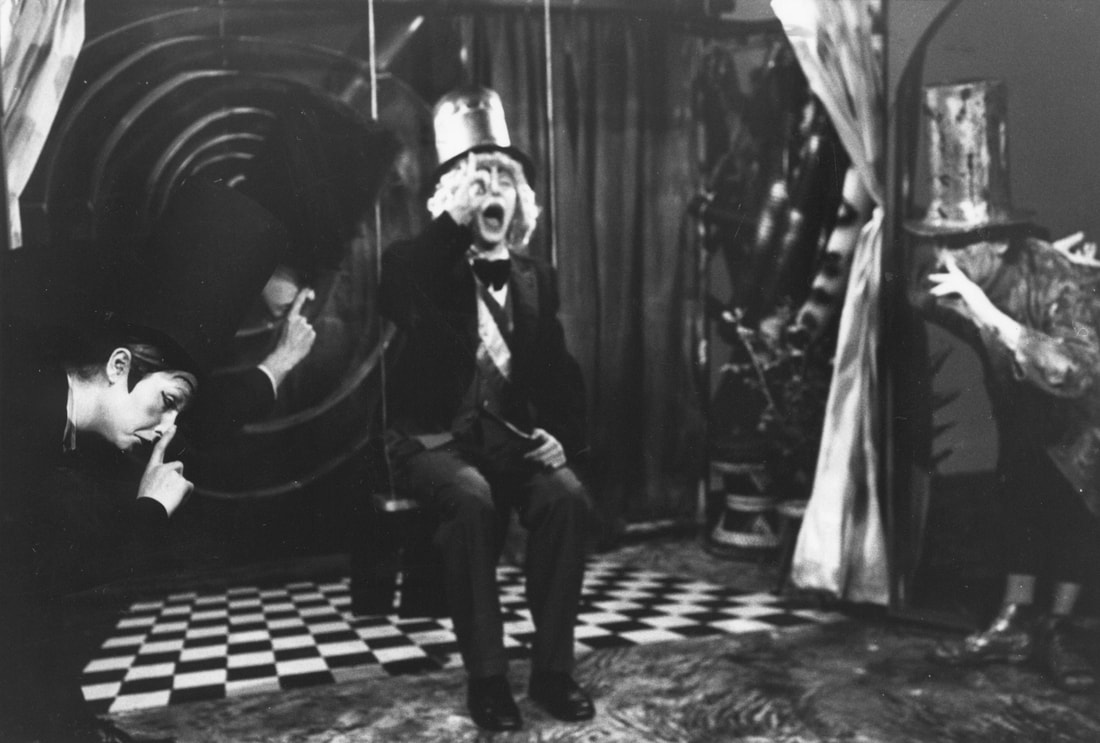
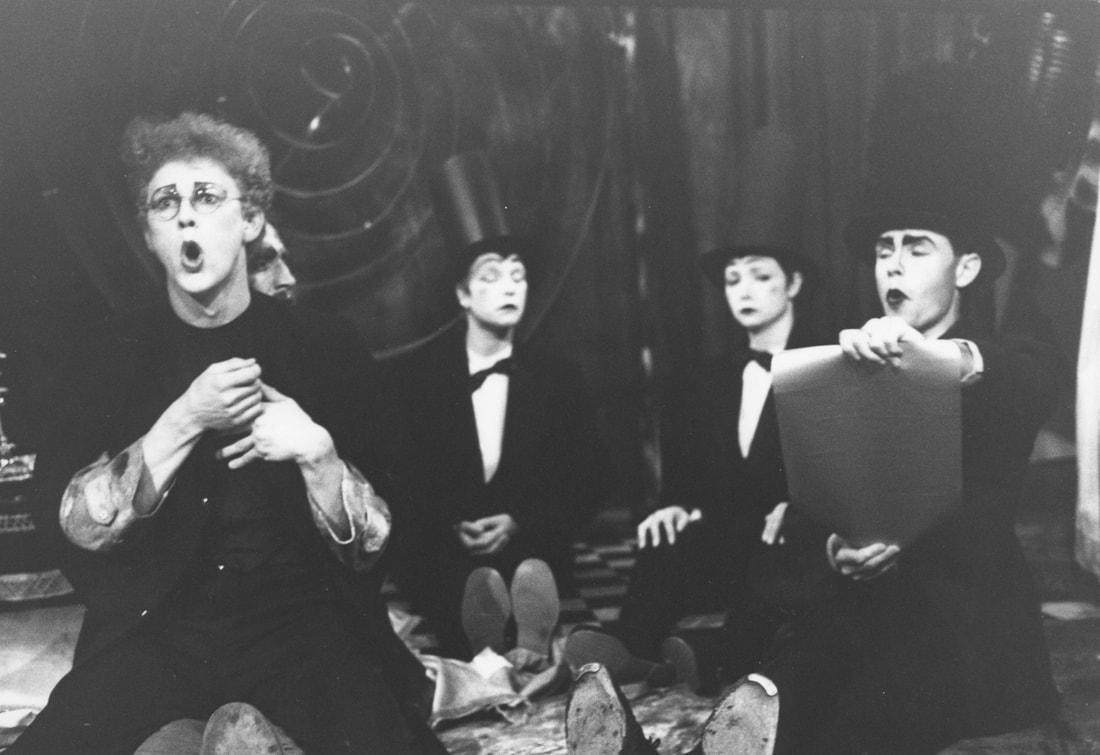
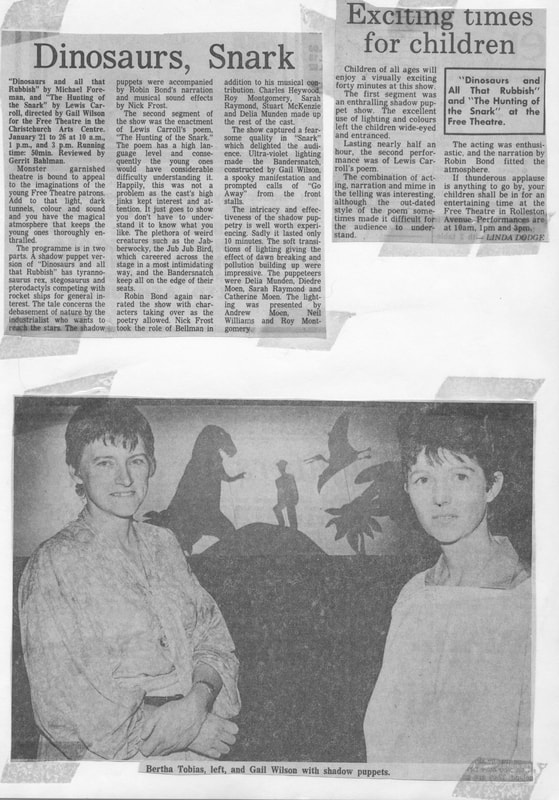
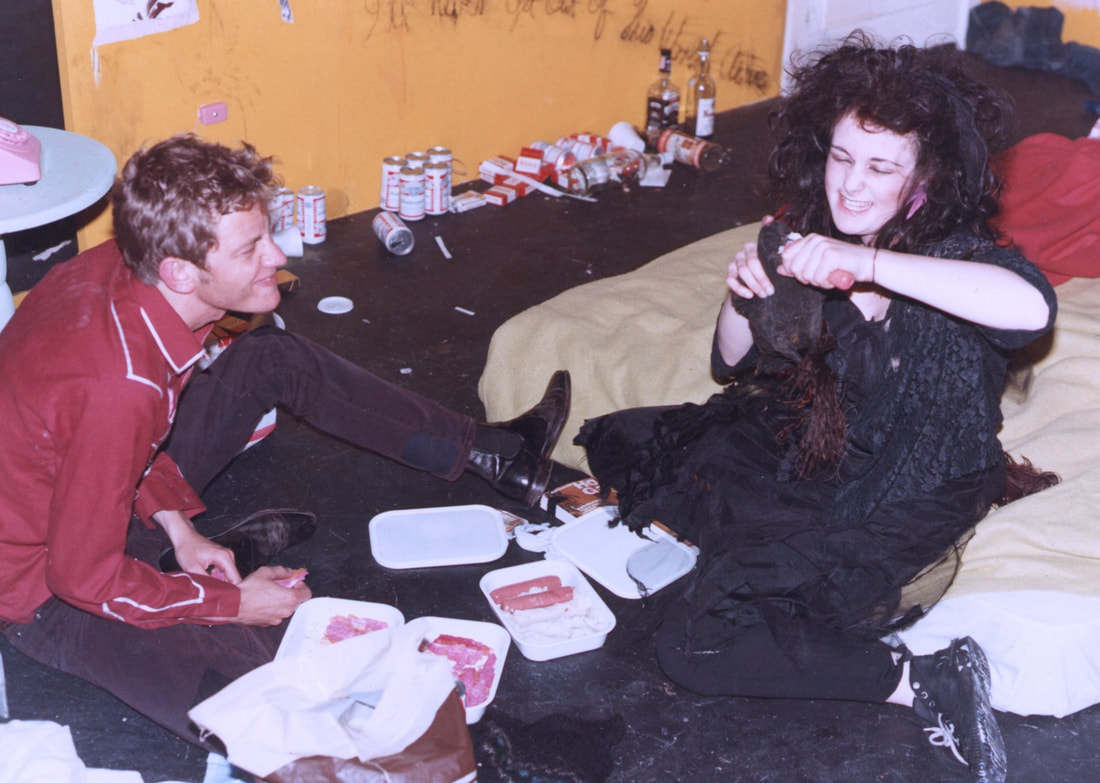
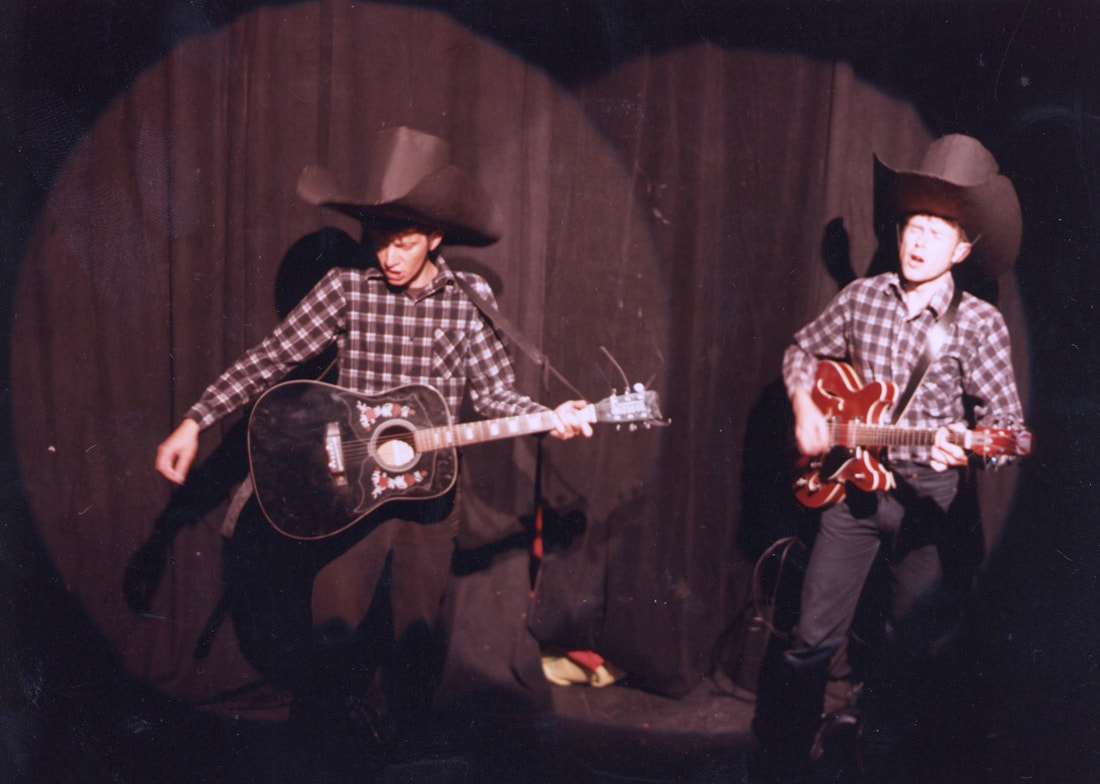
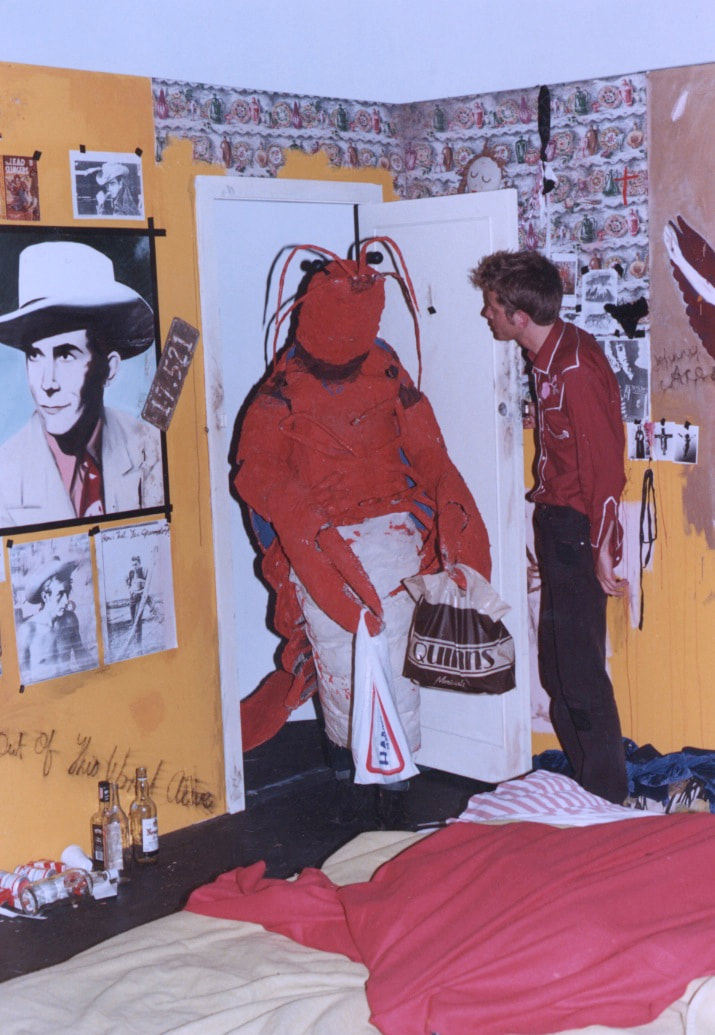
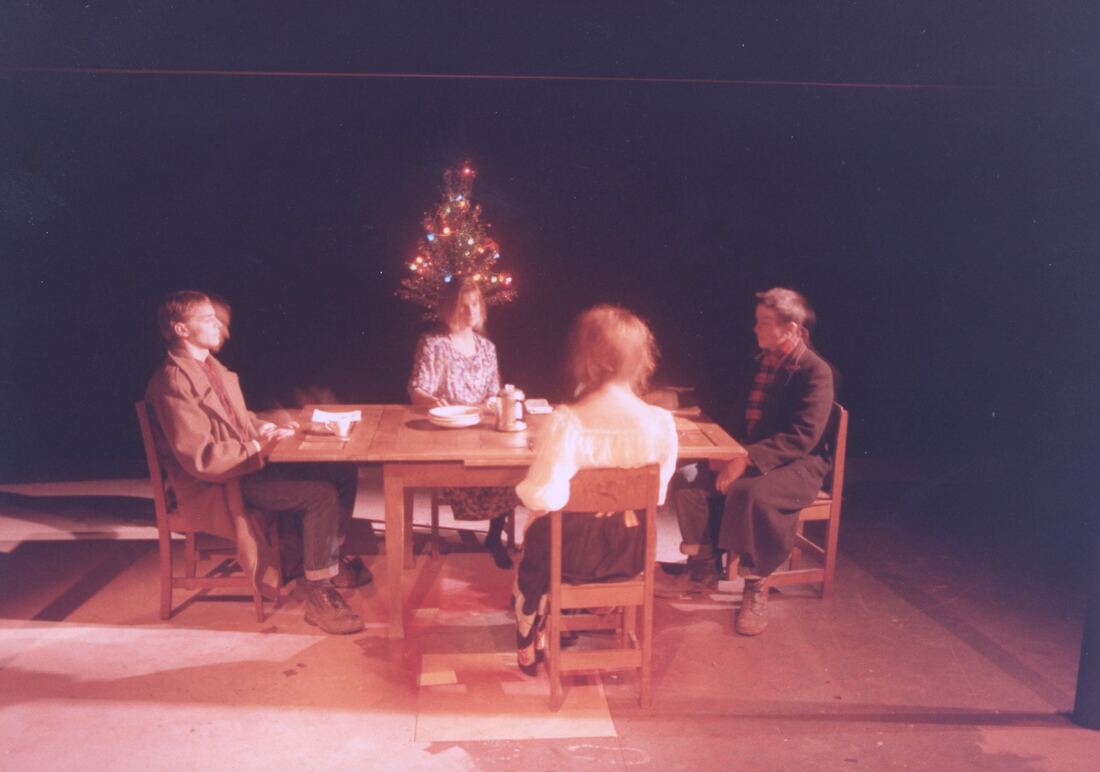
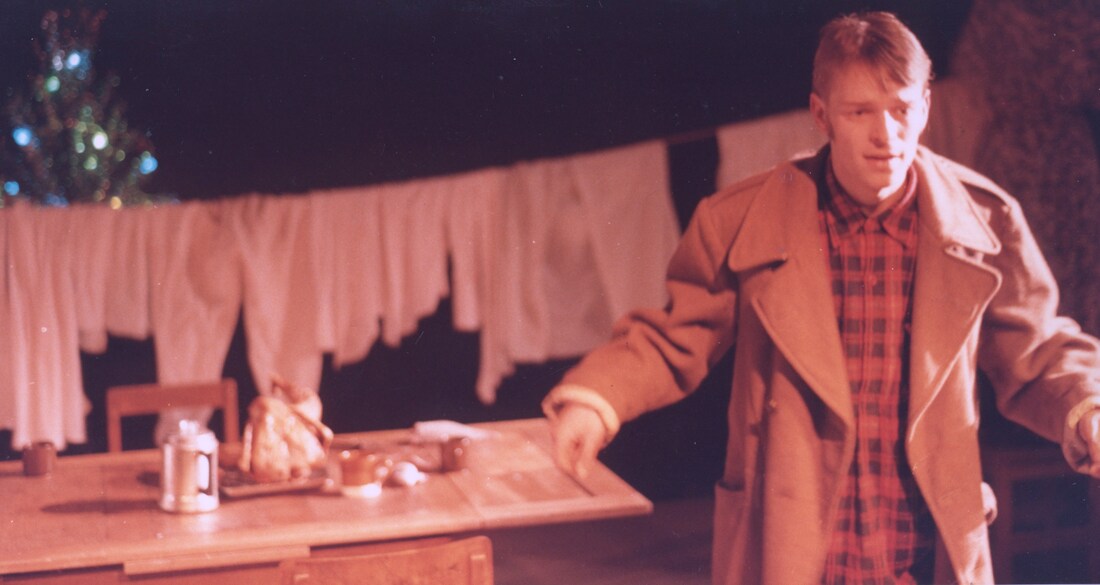
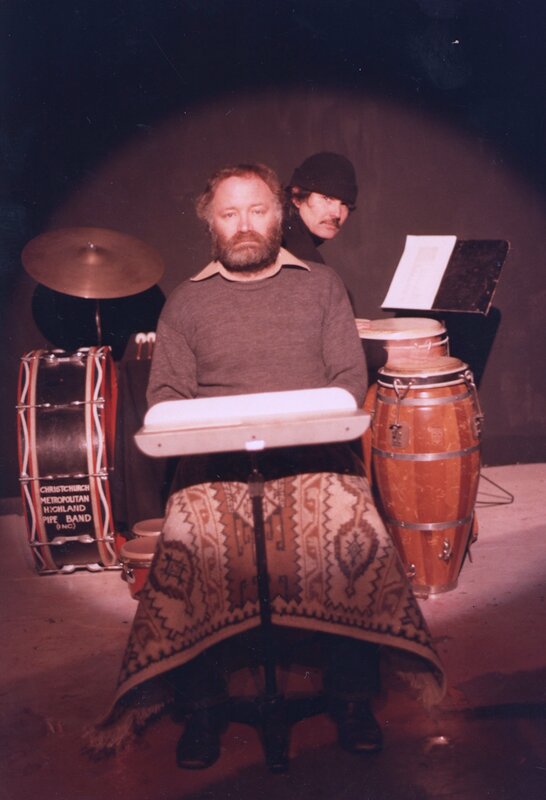
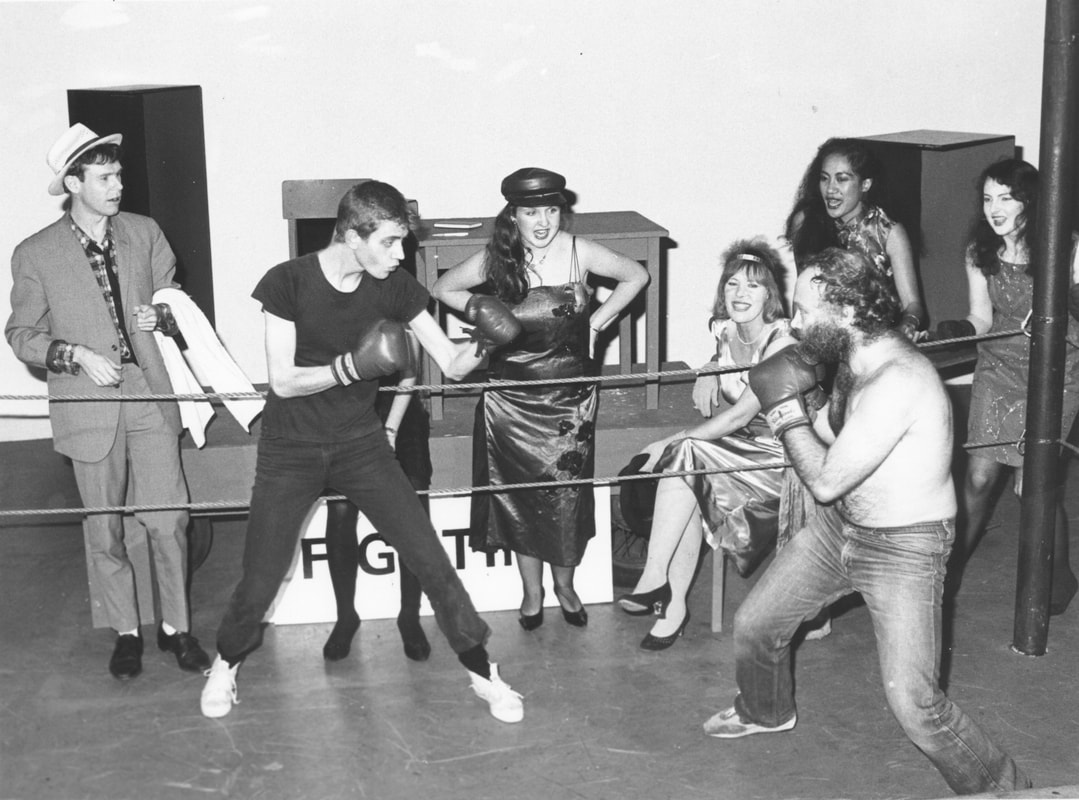
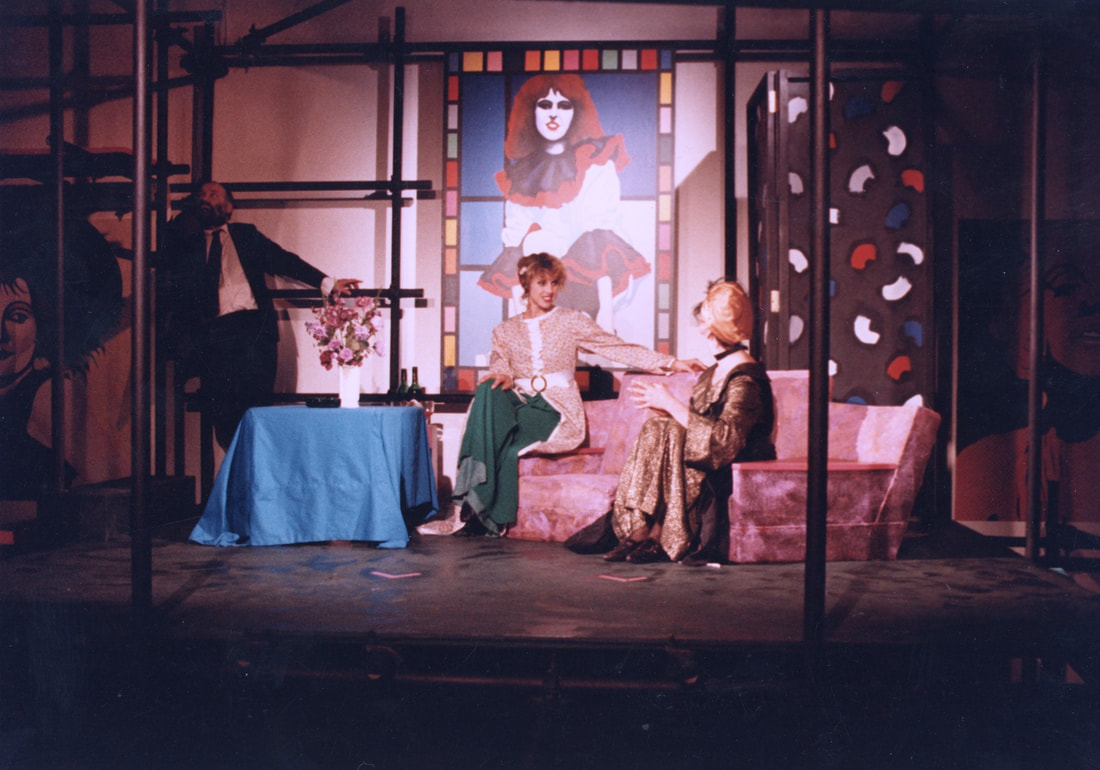
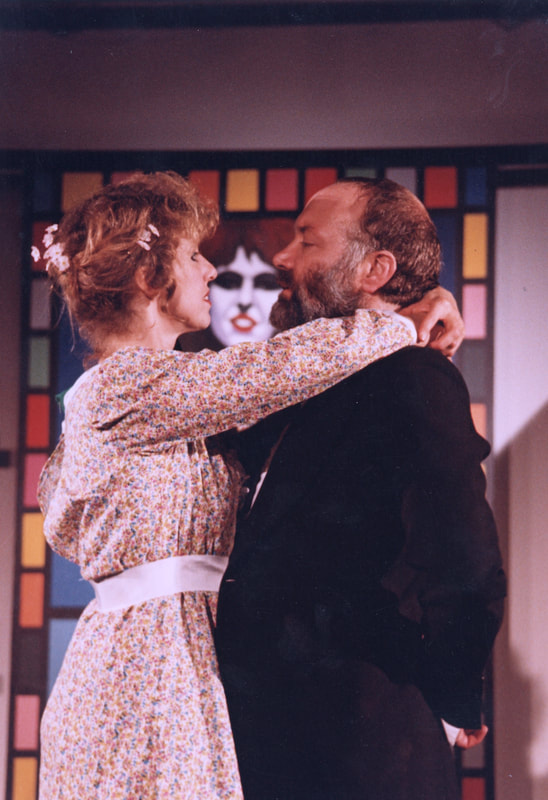
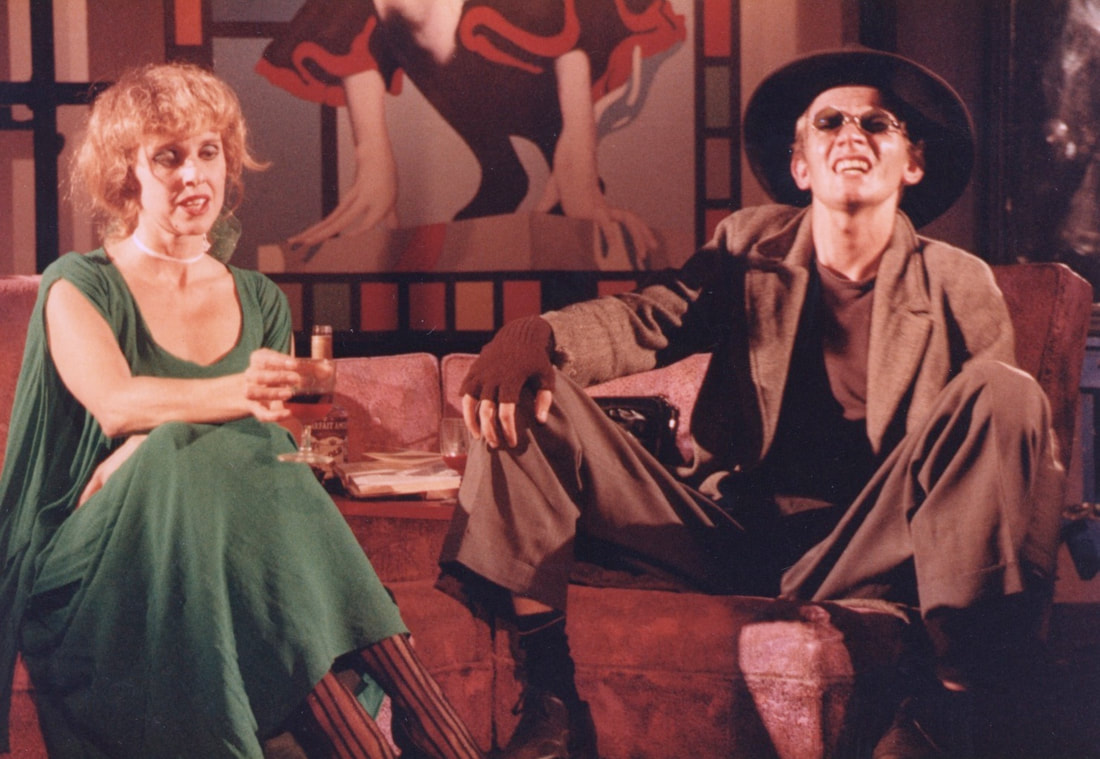
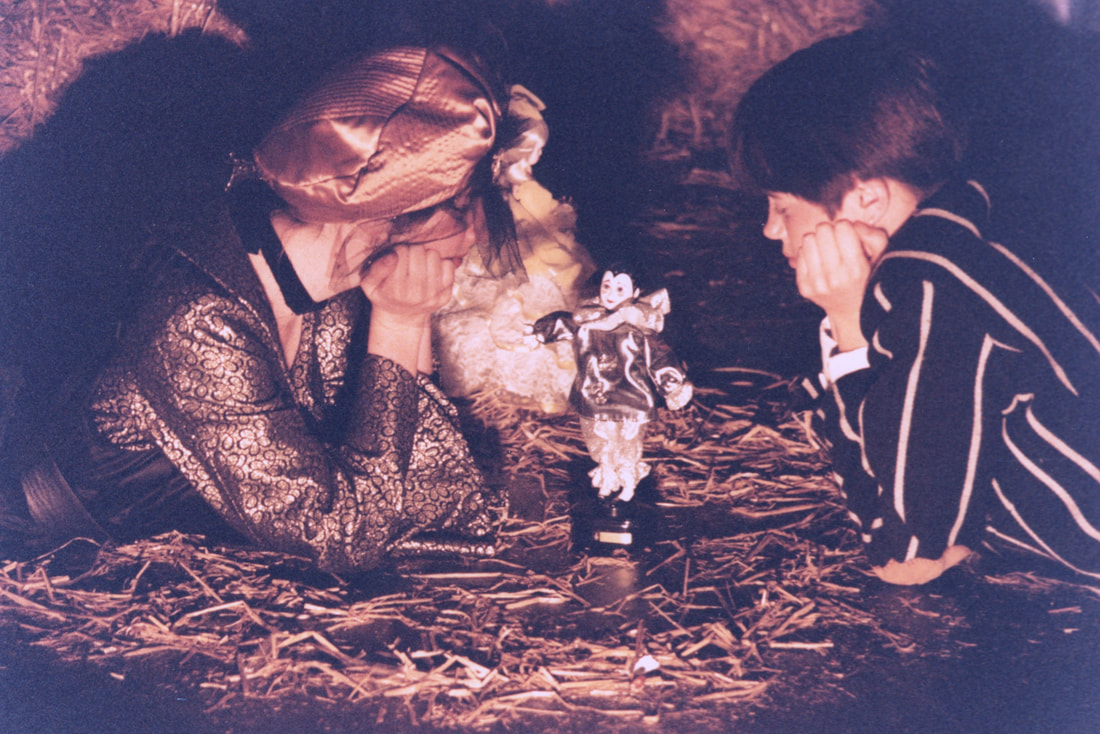
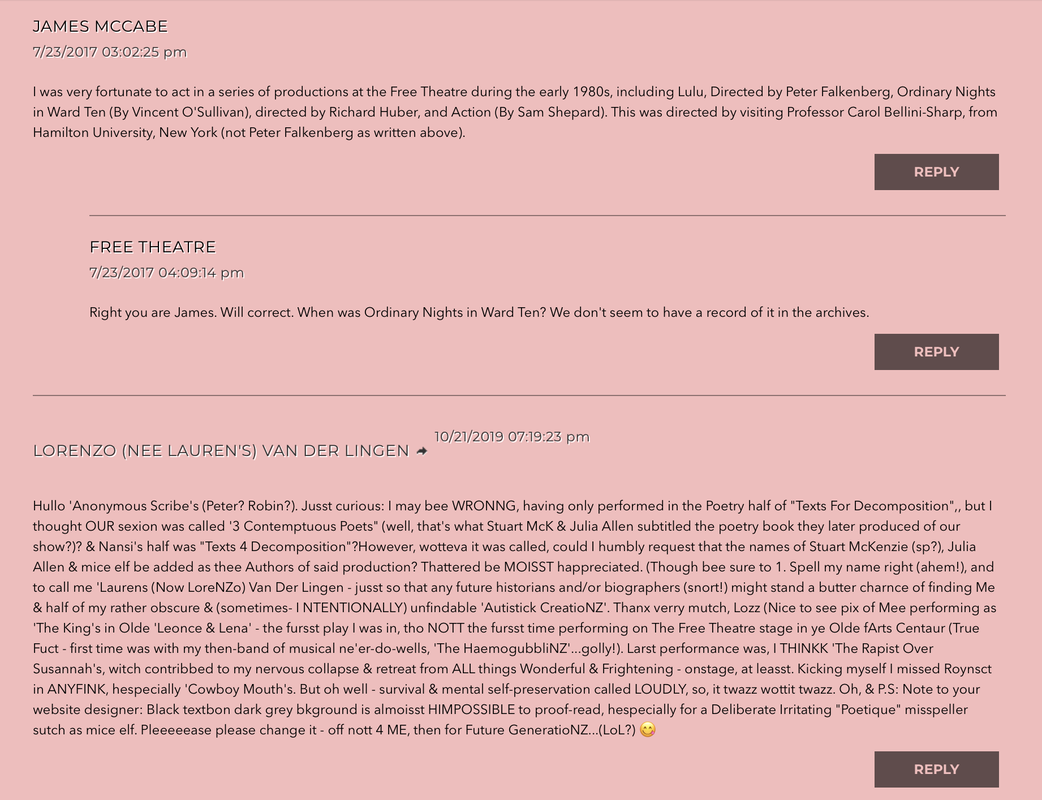
 RSS Feed
RSS Feed

